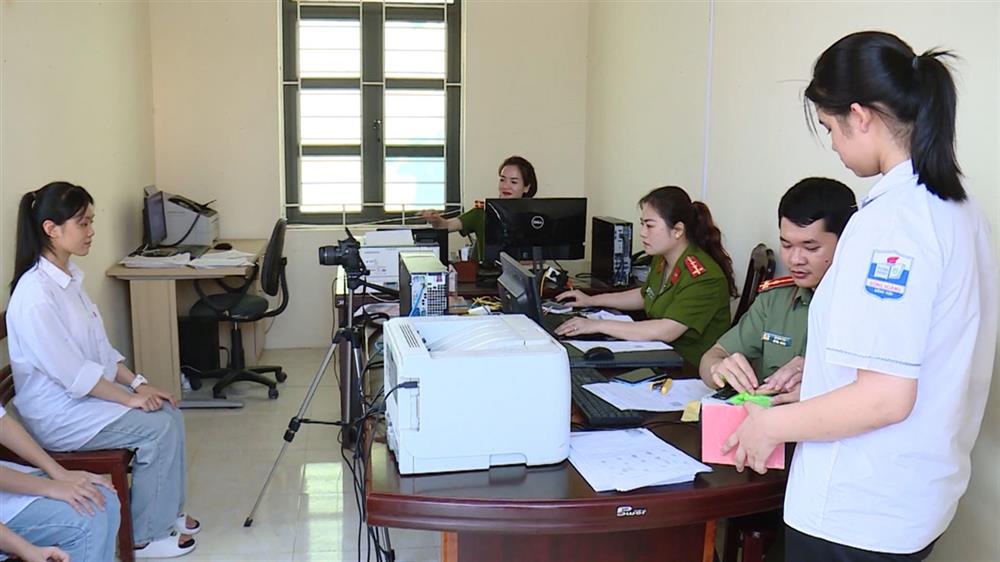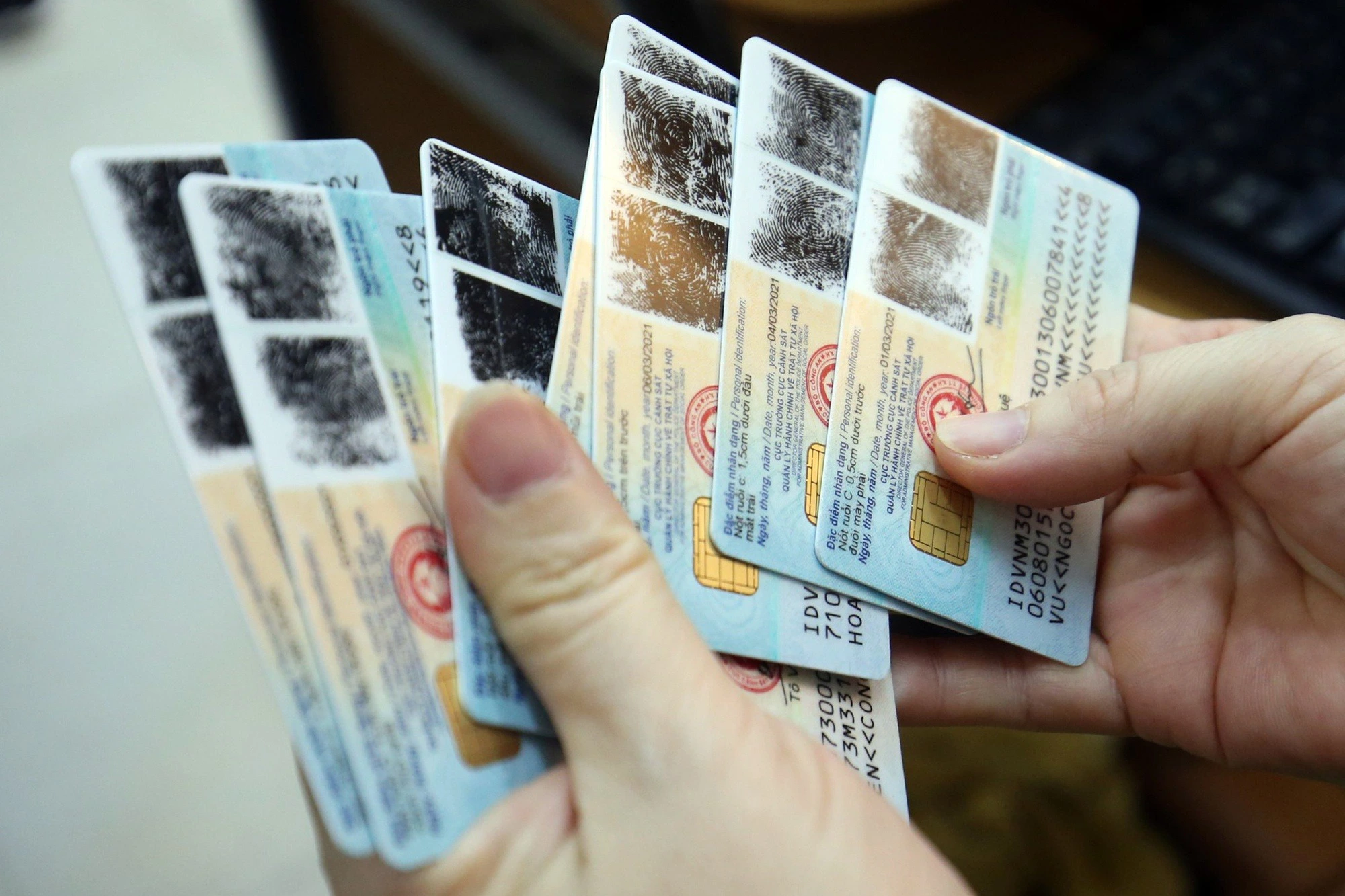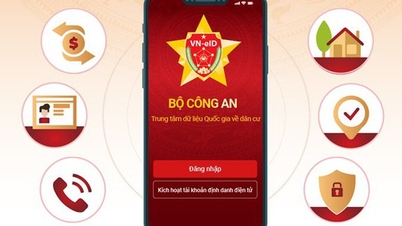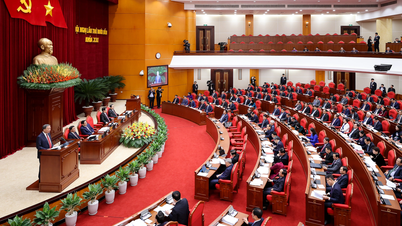Issuing ID cards to people over 14 years old
The Ministry of Public Security said that the Law on Identification (Law No. 26) was passed by the National Assembly on November 27, 2023, and will take effect from July 1, 2024. It stipulates the procedures for issuing identification cards in Article 23.
Issuing an identity card for people aged 14 and over includes the following steps:
Firstly, the functional officer checks and compares the information of the person needing an ID card from the database system; if the person's information is not yet available in the database, the information must be updated and adjusted in the national population database.

People make ID cards at the ID management agencies of the police at all levels.
Second, the recipient collects identity information and biometric information including facial photo, fingerprints, and iris of the person needing an ID card.
Third, the person needing an ID card checks and signs the ID information receipt.
Fourth, the recipient issues an appointment to return the ID card.
Fifth, return the ID card to the location stated in the appointment letter; in case the person who needs the ID card requests to return the ID card at another location, the competent authority will return the ID card at the requested location and the person must pay the delivery service fee.
Procedures for issuing cards to people under 14 years old
For people under 14 years old, the Law on Identification clearly states that citizens or their legal representatives can request the identification management agency to issue an identification card. The order and procedures for issuing the card are as follows:
The legal representative shall carry out the procedures for issuing an ID card for a person under 6 years of age through the public service portal or the VNeID application. For a person under 6 years of age whose birth has not been registered, the legal representative shall carry out the procedures for issuing an ID card through interconnected procedures or directly at the ID management agency. The competent authority shall not collect identification information and biometric information for a person under 6 years of age.
Persons from 6 to under 14 years old and their legal representatives must go to the identity management agency to collect identity information and biometric information as prescribed in Point b, Clause 1, Article 23.
The legal representative of a person from 6 to under 14 years old shall carry out the procedures for issuing an identity card on behalf of that person.
In case of a person who has lost civil capacity or has difficulty in cognition and behavior control, a legal representative must assist in completing the procedures.
If the ID card is refused, the ID management agency must respond in writing and state the reasons.
Where to issue, change, reissue ID cards?
Also according to the provisions of the Law on Identification, citizens make identification cards at the identification management agency of the police of the district, town, city under the province, city under the central city or the identification management agency of the police of the province or city under the central city where the citizen resides.

Chip-based ID cards in circulation will remain valid until the expiry date stated on the card.
In addition, identity cards are made at the identity management agency of the Ministry of Public Security in cases decided by the head of the identity management agency of the Ministry of Public Security.
In case of necessity, the identification management agency organizes the procedures for issuing identification cards at the commune, ward, town, agency, unit or at the citizen's residence...
For the elderly, sick, ill, or disabled who cannot travel, the identity management agency with sufficient conditions (vehicles, technical equipment, human resources) will organize the issuance of identity cards at the citizen's place of residence.
In case the documents and papers provided by the people do not clearly show the administrative location, the identity management agency shall request the people to provide information and have a written commitment for the information provided.
At that time, the identity management agency is responsible for coordinating with the civil status management agency to check and verify before updating and adjusting to ensure accuracy and consistency.
Source



![[Photo] Opening of the 14th Conference of the 13th Party Central Committee](https://vphoto.vietnam.vn/thumb/1200x675/vietnam/resource/IMAGE/2025/11/05/1762310995216_a5-bnd-5742-5255-jpg.webp)


































![[Photo] Panorama of the Patriotic Emulation Congress of Nhan Dan Newspaper for the period 2025-2030](https://vphoto.vietnam.vn/thumb/1200x675/vietnam/resource/IMAGE/2025/11/04/1762252775462_ndo_br_dhthiduayeuncbaond-6125-jpg.webp)








































































Comment (0)